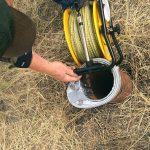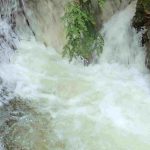Adapting our programs to the COVID-19 climate
As the COVID-19 pandemic continues to affect our daily lives and routines, the Living Lakes Canada team has been adapting where and when possible. We are maintaining our efforts to protect fresh water sources. The climate crisis will continue to impact water, which in turn will continue to impact communities and biodiversity.
Adhering strictly to public health recommendations, we’ve been able to deliver several training sessions, we’ve continued to use an online format to replace in-person meetings, and since the nature of field work is to be (mostly) alone and outside, we’ve been able to undertake several exciting projects (see our October 2020 News Stream newsletter for recent updates).
The COVID modifications we’re implementing for each program are listed below. If you have any questions, feel free to contact us.
General Operations
 The Living Lakes Canada team is still working diligently to deliver all of our projects during the COVID-19 pandemic. Our team members are all working from home and we stay connected online. All Program Managers have adapted their projects to ensure current physical distancing protocols are adhered to. Our priority always has been, and will continue to be, the protection and stewardship of freshwater in Canada.
The Living Lakes Canada team is still working diligently to deliver all of our projects during the COVID-19 pandemic. Our team members are all working from home and we stay connected online. All Program Managers have adapted their projects to ensure current physical distancing protocols are adhered to. Our priority always has been, and will continue to be, the protection and stewardship of freshwater in Canada.
~Executive Director Kat Hartwig: kat@livinglakescanada.ca
STREAM, Targeted eDNA & CABIN
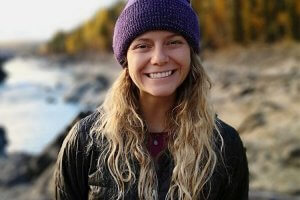
To minimize the risk of COVID-19 in the communities we work and play, we’ve implemented new protocols which include sanitization, performed task hazard analysis on the existing CABIN protocol steps to ensure participant safety and taken extra precautions including closed courses with smaller course sizes. We have been implementing health tracking for staff which includes recording any symptoms for 2 weeks before hosting any groups or traveling to remote communities. The largest challenge has been planned travel to other provinces. All of our courses in Ontario have been postponed to 2021 including Kenora, Thunder Bay, and Ottawa and our Whitehorse course has been postponed indefinitely. For our upcoming targeted eDNA work in collaboration with Selkirk College, the range and extent of “hands on” collaboration and interaction will be subject to current COVID-19 restrictions, but it will still be an informative event for Selkirk students, and allow LLC to continue collecting critical information on important species in the area. We want to thank all of our project partners for adapting to the new protocols to make training and water monitoring still possible.
~STREAM/CABIN Program Manager Raegan Mallinson: raegan@livinglakescanada.ca
Kootenay Lake Partnership (KLP)
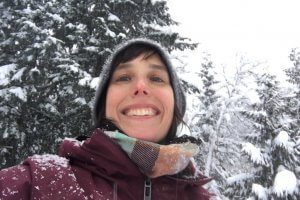 The Kootenay Lake Partnership has been proceeding with training on the Shoreline Guidance Document, from a distance! COVID-19 will be re-shaping what public engagement looks like as we explore online options to connect with communities to ensure that shoreline regulations meet shared objectives and the needs of our communities.
The Kootenay Lake Partnership has been proceeding with training on the Shoreline Guidance Document, from a distance! COVID-19 will be re-shaping what public engagement looks like as we explore online options to connect with communities to ensure that shoreline regulations meet shared objectives and the needs of our communities.
~KLP Acting Program Coordinator Kristin Aasen: klp.coordinator@gmail.com
Foreshore Integrated Management Planning (FIMP)
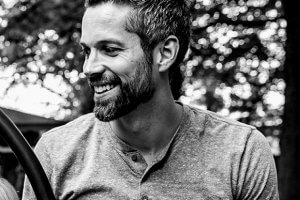
The FIMP Program continues to implement various measures and precautions to reduce the potential spread of COVID-19. For example, consultants included physical distancing measures, face masks, and the use of copious amounts of hand sanitizer while completing fieldwork this summer (which had its challenges considering most of this work was done from small boats). In one instance, fieldwork was actually delayed to accommodate a self-quarantine due to a potential exposure to COVID-19.
~FIMP Acting Program Manager Ryan Cloutier: ryan@livinglakescanada.ca
Columbia Basin Groundwater Monitoring Program
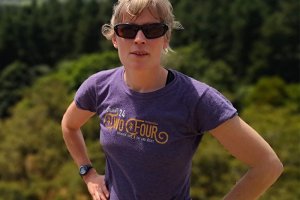 The Groundwater Monitoring Program has been implementing social distancing and safety protocols – both in the office and in the field. The British Columbia Ground Water Association (BCGWA) has compiled COVID-19 information and links that are relevant to BCGWA members and the groundwater community. We have been continuing to follow industry standards and COVID-19 specific guidance for protecting people and our groundwater resources.
The Groundwater Monitoring Program has been implementing social distancing and safety protocols – both in the office and in the field. The British Columbia Ground Water Association (BCGWA) has compiled COVID-19 information and links that are relevant to BCGWA members and the groundwater community. We have been continuing to follow industry standards and COVID-19 specific guidance for protecting people and our groundwater resources.
~Groundwater Program Manager Carol Luttmer: carol@livinglakescanada.ca
Columbia Basin Water Monitoring Collaborative & Water Hub
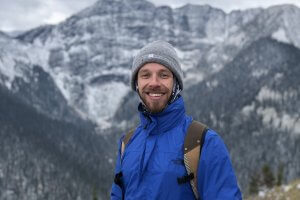 We are fortunate that most of our work is carried out remotely. However, in order to minimize the risk of exposure and spread of COVID-19, and to protect our team members and database users, we have set up extra precautions. With the release of our database approaching, we anticipated the need to connect with some of our users face to face, so we are setting up online “Office Hours” to minimize contact and still meet with our users. We also adhere to the policies put in place for the Living Lakes office space we work in. Following proper guidelines for hand washing, physical distance, and staying home if sick. We are grateful that we can support the access to important water data through these challenging times.
We are fortunate that most of our work is carried out remotely. However, in order to minimize the risk of exposure and spread of COVID-19, and to protect our team members and database users, we have set up extra precautions. With the release of our database approaching, we anticipated the need to connect with some of our users face to face, so we are setting up online “Office Hours” to minimize contact and still meet with our users. We also adhere to the policies put in place for the Living Lakes office space we work in. Following proper guidelines for hand washing, physical distance, and staying home if sick. We are grateful that we can support the access to important water data through these challenging times.
~ Water Hub Database Manager Santiago Botero: santiago@livinglakescanada.ca
North Kootenay Lake Water Monitoring Project
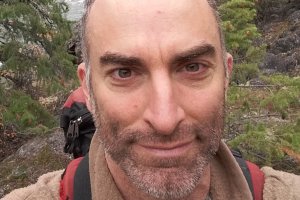 Since most of our recording stations are automated and can be serviced by one person, NKLWMP was able continue monitoring streamflow, climate, and snow accumulation around Kootenay Lake during the pandemic without much impact. To protect our volunteers we did decide to miss two of our regular snow course measurements as they require volunteers to stay in remote backcountry cabins that could not be guaranteed to be well-sanitized. We also reduced the amount of volunteer involvement on field visits as a precaution, and continue to be vigilant in our approach to managing the health of ourselves and our volunteers.
Since most of our recording stations are automated and can be serviced by one person, NKLWMP was able continue monitoring streamflow, climate, and snow accumulation around Kootenay Lake during the pandemic without much impact. To protect our volunteers we did decide to miss two of our regular snow course measurements as they require volunteers to stay in remote backcountry cabins that could not be guaranteed to be well-sanitized. We also reduced the amount of volunteer involvement on field visits as a precaution, and continue to be vigilant in our approach to managing the health of ourselves and our volunteers.
~Program Hydrologist Paul Saso: paulcsaso@gmail.com




